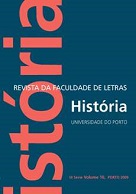Do bloqueio continental à mudança da corte para o Rio de Janeiro
Abstract
This paper analyses the national debate between different currents of opinion on the issue of the Continental Blockade, trying to influence the Prince Regent, who personally supported Portugal’s neutrality. This study is the result of a reading of the international circumstances that drove England, an ally of Portugal, to be the dominant sea power, while Napoleon, bolstered by his victories in the European fields of battle, declares the Blockade and incorporates Portugal in its sphere of influence to control its ports, its fleet and trade with its colonies. Caught in the middle of this conflict between Anglophiles and Francophiles imposed by Napoleon, John VI of Portugal was initially more inclined towards France but, following the country’s invasion by Napoleon military forces, the Prince Regent confirms the old alliance with England and, with an English escort, fled to Brazil where he was determined to establish a new empire with its capital in Rio de Janeiro, thus ensuring the continuation of the State and royal family. In the following years the kingdom suffers the hardships of a terrible war but also rises up against the invading forces. Aided by the British army, the French were driven out of the country, while on the other side of the Atlantic the foundations of an autonomous Brazil were being built. The disadvantageous treaty to Portugal, signed in 1810, established the foundations for the emergence of Great-Britain as the world’s dominant naval and maritime commerce power.Downloads
Published
2018-03-29
How to Cite
Ramos, L. A. de O. (2018). Do bloqueio continental à mudança da corte para o Rio de Janeiro. História: Revista Da Faculdade De Letras Da Universidade Do Porto, 10. Retrieved from http://84.247.136.72/ojsletrasX/index.php/historia/article/view/3675
Issue
Section
Thematic Dossier
License
The authors grant to História the exclusive right to publish their texts, in any form, including their reproduction and sale, in any form, as well as their availability under open-access databases.
The texts published cannot be used in other publications without the express authorization of the Editorial Committee.
All the texts published are protected by a Creative Commons Attribution-NonCommercial (cc-by-nc) License, that allows the sharing of texts, for noncommercial purposes, with attribution of authorship and initial publication in this journal.






